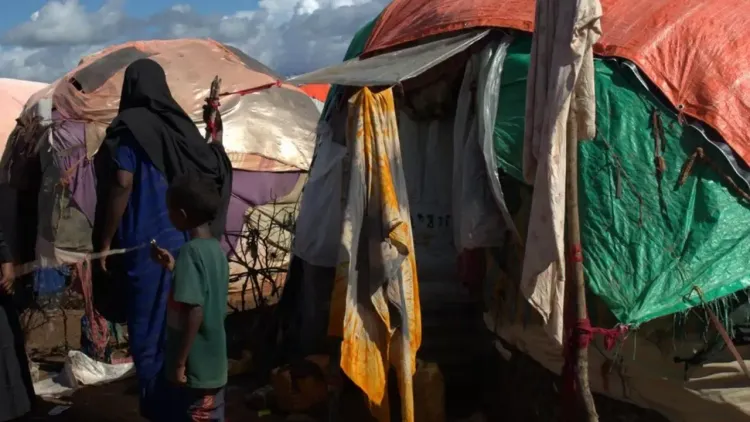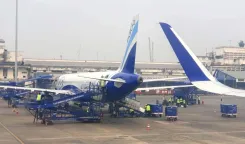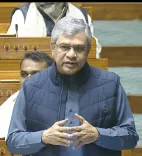WFP Requires Nearly $255 Million to Boost Humanitarian Support in Somalia Until May

Mogadishu, Jan 7 (NationPress) The World Food Programme (WFP) declared on Tuesday that it needs $254.7 million in net funding to bolster humanitarian support in Somalia until May, with an estimated 5.98 million people projected to require assistance by then.
The WFP noted, "The humanitarian situation remains critical due to expected poor rainfall, arid conditions, and ongoing armed conflict," emphasizing a significant funding shortfall of $242.4 million for essential humanitarian relief and nutritional support.
Currently, 4.4 million individuals in Somalia, nearly a quarter of the population, are experiencing acute food insecurity, while an additional 1.6 million children under five are anticipated to face acute malnutrition from August 2024 to July 2025.
Together with other United Nations agencies, the WFP is urgently appealing for more funding to enhance humanitarian and resilience initiatives to mitigate the effects of the expected drought in Somalia. This situation is worsened by funding deficits, unfavorable rainfall predictions, continuing security issues, and increasing food costs.
The WFP report highlighted that conflict led to 476,000 new internal displacements in 2024, accounting for 52 percent of the total, with climate-related shocks causing most of the remaining displacements.
"These recurrent displacements and ongoing climate shocks are straining the coping mechanisms and resilience of millions of Somalis," the report stated.
The WFP also indicated that the Deyr rains from October to December 2024, influenced by La Nina conditions, were subpar, characterized by delayed onset and minimal rainfall across large areas. Consequently, significant vegetation decline has been observed since early October last year, with the region bracing for a harsh Jilaal dry season from January to March, as reported by Xinhua news agency.
On July 23, 2024, the WFP mentioned it needed $199.8 million in net funding to boost humanitarian operations across Somalia for the following six months.
The WFP reported a notable decrease in the number of food-insecure individuals in Somalia, attributed to enhanced rainfall and consistent humanitarian support.
"Nonetheless, despite these improvements, the lasting impacts of the historic drought, conflict, insecurity, macroeconomic issues, and devastating El Nino-induced floods continue to heavily affect vulnerable communities in Somalia," the WFP stated in its latest report from the Somali capital, Mogadishu.










